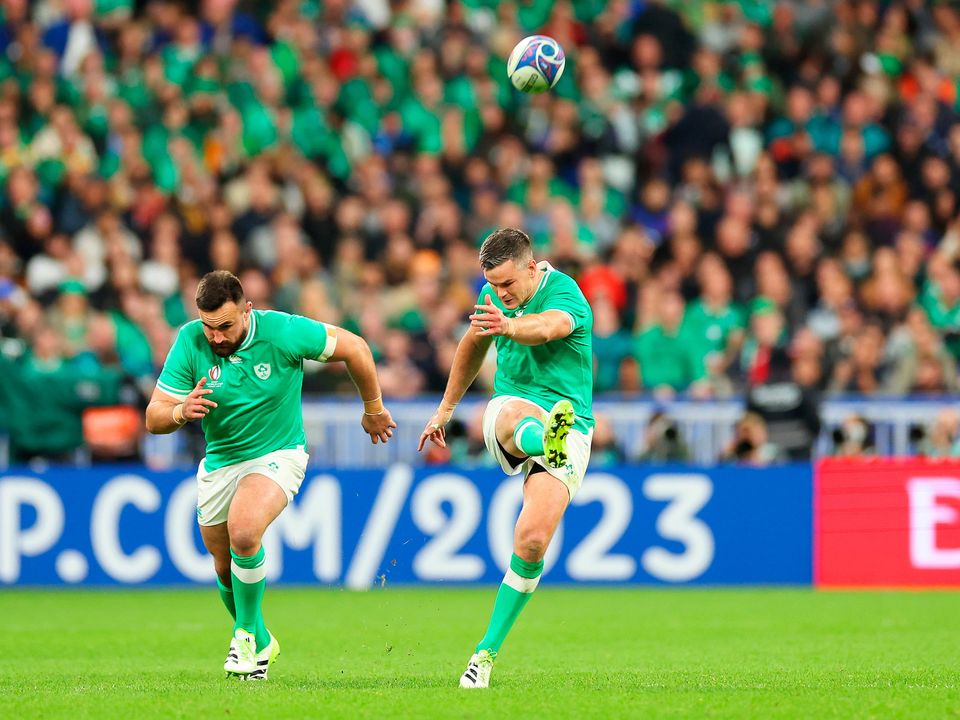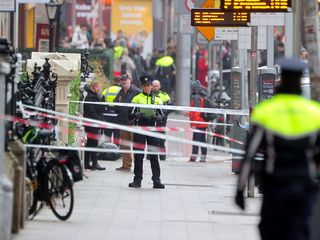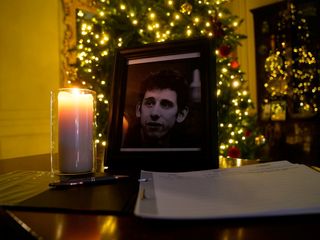Roy Curtis: Johnny Sexton had the air of a man whose soul had been ripped from his innards
Irish heartache hard to take after heroic performance
PARIS, FRANCE - OCTOBER 14: Johnny Sexton of Ireland kicks the ball during the Rugby World Cup France 2023 Quarter Final match between Ireland and New Zealand at Stade de France on October 14, 2023 in Paris, France. (Photo by Chris Hyde/Getty Images)
Johnny Sexton had the haunted expression of a man who had just been dumped, by a downward plunging express elevator, into the bowels of some hellish everlasting misery.
Ireland’s grandee looked hollow, haunted, like a creature who had seen something essential sucked from his marrow.
His features were disfigured by disappointment, an image that will endure in a thousand terrible photographs.
An athlete of vaulting ambition, the most charismatic of leaders, you could almost hear the bells of devastation chiming in that intelligent, obsessive 38-year-old skull.
Around him, those in green sunk to their knees, shed tears, the colour draining from their face...a portrait of Irish heartbreak.
It wasn’t supposed to end like this.
Not after 14 years, 118 caps and more than 1,100 points, not emotionally concussed by slamming for a fourth time in a storied career into that unbreakable World Cup glass ceiling.
Not with Ireland failing to find the best of themselves in a game for which they had been waiting for so much of their rugby lives.
Read more
New Zealand, though, ransacked their memory to produce a display to match the finest of their storied back catalogue. It was enough to edge a classic.
Like salmon slipping through fraying strands in a fishing net, they repeatedly found holes in Ireland’s defence.
At critical moments, they destroyed Ireland at the breakdown and the line-out, survived two yellow cards and plunged Ireland into that familiar, excruciating World Cup abyss.
Sexton will never play for Ireland again, instead the 38-year-old must retreat into the shadows weighed down by the baggage of the nation’s oppressive history at this tournament.
This time it was supposed to be different.
Ireland had won 17 games on the spin, were the planet’s top ranked team, the bookies favourites.
But what many anticipated would be a Parisian pleasure dome was instead reduced by the reanimated and merciless All Blacks to a charnel house for the bones of Ireland’s ambitions.
A first test defeat in 469 days, more than 20 points conceded for the first time in 16 test matches – little wonder that so many Irish players stared out from hollow eye sockets.
Andy Farrell’s platoon was undone a catastrophic sequence of systems errors.
A slow start saw New Zealand power into a 13-point lead, while a line-out malfunction – a continued theme at this tournament - threatened to undo their challenge.
To be fair, Ireland again showed impressive character and resilience.
Having shipped two early All Blacks haymakers - Leicester Fainga’anuku and the outstanding Ardie Savea touching down – they somehow still went in at half time just a point adrift.
It was a pair of New Zealand born Irishmen who offered Ireland a lifeline.
Bundee Aki consolidating his status as Ireland’s Player of the Tournament showed magical footwork to finish a stunning solo effort.
And Jamison Gibson-Park rewarded Sexton’s bravery in turning down three certain points on the stroke of half time.
But by the end of the third quarter, when speedster Will Jordan hit the after burners to secure a third New Zealand try, Ireland were again seeking to extricate themselves from a hole deep enough to house a Metro line.
Sexton fluffed a shot at the posts and the energy began to ebb from the stadium. A glorious adventure was revealing its dark side.
The morning was still only a suggestion when the first of the green hordes began to flood the Parisian brasseries.
Upwards of 60,000 Irish – more than the population of Waterford city, more than could squeeze into the Aviva Stadium – flooded the narrow, medieval Latin Quarter, conquered the broad boulevards about Place de la Concorde.
An endless caravan of humanity that confirmed Irish rugby’s hour of truth was upon us.
There was no avoiding the truth that an historic moment in time was approaching for Farrell’s team: By nightfall, Saint Denis would either be bathed in a sense of Celtic fantasy or declared the burial ground for a fallen Irish dream.
Devastatingly, it would be the latter.
When Sexton led Ireland out into the Gallic night the roar was primeval, thundering with longing, earthshaking, that of a mighty and swollen river bursting its banks.
It spoke of the connective tissue between team and terrace, a bond that has strengthened on this World Cup odyssey.
The camera flashes from ten thousand phones glittered like a distant galaxy’s star clusters, people under a spell eager to capture and preserve the wild adrenalin rush.
During the anthems, Peter O’Mahony, that most demonstrative of warriors, sang like a man determined his voice would carry all the way to his native Cork.
He resembled a dog straining from a leash, impatient to be given his head.
Sexton, Ireland’s grandee, was chasing a moment of World Cup catharsis, while at the same time understanding the implications of defeat: It would bring one of the nation’s great sporting careers to an unhappy conclusion.
Every top-tier nation had surrendered to Ireland across a 17-game winning streak leading to this moment, yet still the overflowing cup of excitement was sugared with anxiety.
If it was the history of quarter-final failures that frayed some nerves, it was the sight of the most storied uniform in rugby, New Zealand’s All Black battle dress, that had others on edge.
Three-time tournament winners against a team who have never once been able to break through that unyielding quarter-final wall: History was on the Antipodean side.
And now, deep into the final quarter they were hollering against the most unpromising odds.
An Irish penalty try after a powerful maul eased them within a point and set up a frantic and nerve-shattering finale.
But Jordie Barrett hammered the final two nails into Ireland’s coffin – slotting a three-pointer, then somehow holding up Ronan Kelleher after he had crossed the line and looked certain to score.
After a last, heroic 40-phase effort from the side in green, the final whistle sounded the stunned Irish players looked as frozen as the doomed citizens of Pompeii.
Hand on hips, now an ex-player, a broken Sexton had the haunted air of a man whose soul had been ripped from his innards.











































